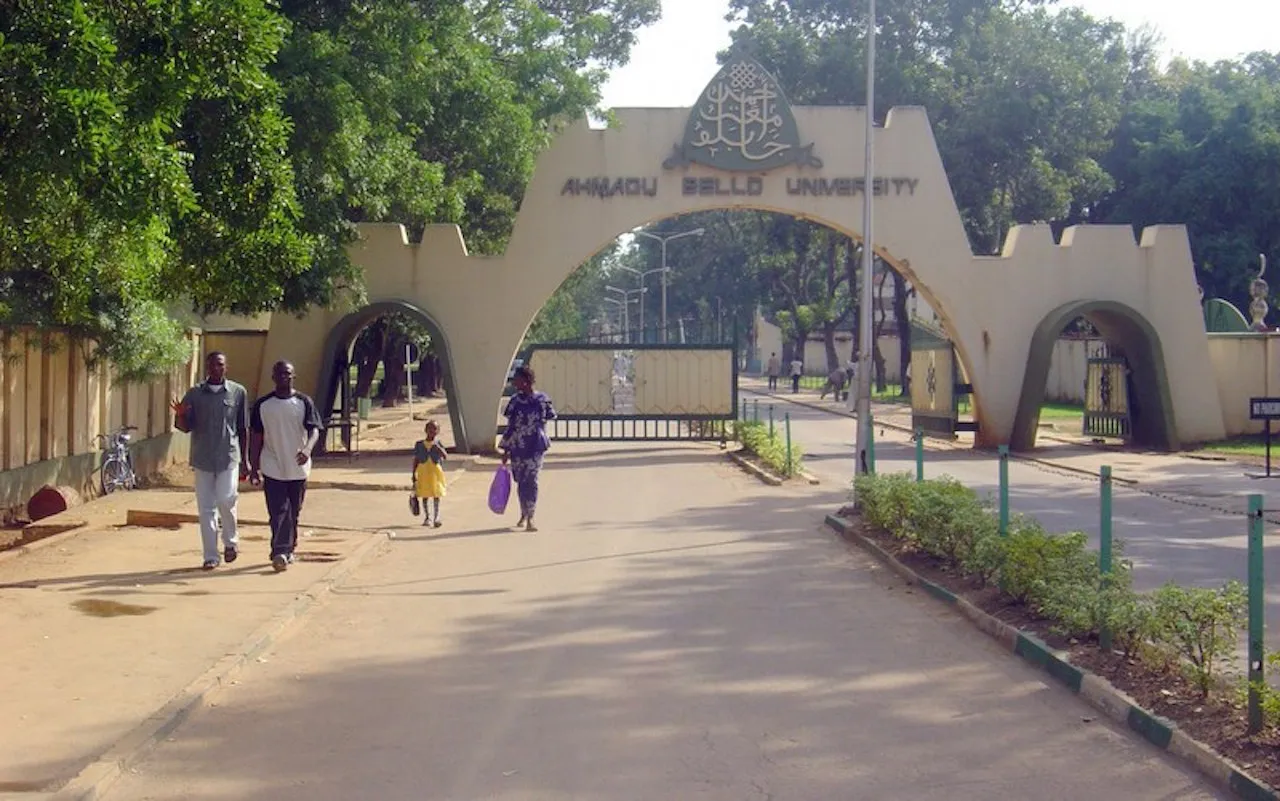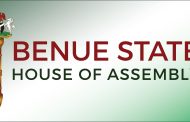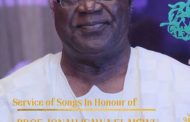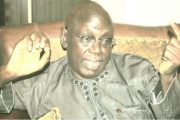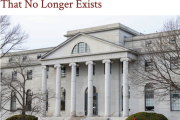By Professor Oga Steve Abah*
Ladies and Gentlemen, it is a humbling experience for me to stand here on this Memorial event to talk about a colleague I knew and worked with for decades. It is humbling because a couple of years ago, we were talking and laughing together, and like a blink of an eye, Bappa was gone. It makes us reflect on life and lessons of how we live and relate with others. Let us for a moment talk about Bappa, his happy moments with colleagues and his dedication to work and humanity.
Bappa was a committed popular theatre and popular culture scholar. His scholarly activities were, however, of a different kind to the one of writing articles and books. His scholarly activities were in his engagements with community and people. He wrote his articles in words, he published them in the relationships he established for himself as a person, and for his alma mater, Ahmadu Bello University, Zaria. The puzzle and surprise were that Bappa was more than capable of writing scholarly articles. He was a very detailed analyst whose analyses of plays, of performance and of social phenomena were apt. Two of Bappa’s scholarly works remain undying reference materials for scholars and writers in Theatre for Development and Cultural Studies.
Ladies and Gentlemen, take a look around this hall. The number and diversity of people seated here attests to Bappa’s friendship across social, religious and political boundaries. He traversed the country promoting the goodness of ABU, building bridges across different parts of the country as he sought alumni from north to south, east to west. His persona made him a perfect fit for the job and wherever he went he was accepted; he was at home. I often say that if Bappa was employed as a salesperson in a company, that company would have made billions! His success in promoting alumni relations lay in his belief that different ethnicities and religions can, and do, work together for the common good of society. He believed that on that score, there was no difference between Nigerians. He lived that belief out in his life: He was born into the Fiam ethnic group in Mangu Local Government, Plateau State. He attended the famous Gindiri Boys Secondary School. His attendance of a Mission-run Secondary School allowed him to understand the Bible. He was Moslem. He knew both the Quran and the Bible well. Bappa studied at the University of Ibadan, Jos Campus. Upon graduation, he sought employment and joined Ahmadu Bello University, Zaria, as Graduate Assistant in 1978. He also worked with the National Council for Arts and Culture (NCAC), based in Lagos at the time.

An angle to the audience at the memorial
The Wind! – All his life, Bappa was building bridges across ethnic groups, across faiths and across social cleavages. Whether as an academic, or an administrator, he was restless, breezy and tireless in performing his different duties. Bappa moved like the wind and those of us in the Department of Theatre and Performing Arts, Ahmadu Bello University, Zaria with him, knew him as BP or the wind! Let me tell you why we called him the wind. He was always sought after by students, colleagues and a whole lot of people. Whenever you directed someone to where Bappa was supposed to be, he would have moved on! Once when we told him several people had been looking for him. He responded by saying: “You don’t chase the wind! Stay in one place and I will bump into you!” From that day he became the wind! No one, even cars moved fast enough for him. Listen to this: One of the days, when he was an Alumni Officer, Bappa was scheduled to go to Kaduna with his driver. The driver could not find the car key momentarily. After a few minutes of waiting by the car at the car park in the Faculty of Arts and Social Sciences, he left word for the driver to meet him in Kaduna. Bappa ran to the Main Gate and went to Kaduna by public transport! That was the wind!!
I met Salihu Bappa in October 1979, when I was employed as a Graduate Assistant in the Department of English and Drama, Ahmadu Bello University, Zaria. He was employed in 1978, the year I graduated. Bappa was an immediate friend, as he was to everyone. All of us who were employed at this time were joining Ahmadu Bello University in the hot period of Marxist/Socialist debates that were unpacking Nigeria. That ferment and passion for ‘revolution’ and ‘change’ defined academic studies, informed political and administrative practice in Government quarters in the 1980s. The Faculty of Arts and Social Sciences (FASS), in ABU was the hot crucible challenging society, revisioning class relations and the politico-economic direction of Nigeria. This period needed passionate, creative storytellers. It needed people willing to be interpreters and interrogators of events and policies in the country. Salihu Bappa was one of the passionate interpreters of the time. Together with staff and students, we all digested Walter Rodney’s How Europe Underdeveloped Africa, Frantz Fanon’s The Wretched of the Earth, Paulo Freire’s Pedagogy of the Oppressed, Ngugi wa Thiong’o’s Decolonizing the Mind. The postulations of Patrick Wilmot and Bala Usman stirred the mud! And, for those of us in Drama, Augusto Boal synthesized the arguments of oppression, the mechanics of dictatorship and the means of decolonizing the mind, in his seminal book, Theatre of the Oppressed. Theatre was our tool to reengineer society. Samaru, Bomo, Kudingi, Panhauya, etc. became both community partners and academic laboratories for schooling students into the realities of class, governance and the struggle for emancipation.
Bappa, and other staff, under the tutelage of Michael Etherton, Brian Crow and Tony Humphries, would take students into Samaru for the ‘The Samaru Project’ or other surrounding communities for ‘Community Theatre’. These were practical courses that allowed students to understand how Drama/Theatre connected to community issues and realities. Samaru Project and Community Theatre, both of which became flagship courses in the Drama programme, were unique in their multi-disciplinary vision and orientation. Lecturers from Political Science such as Okello Oculi, Jibrin Ibrahim, Bjorn Beckmann, Rauf Mustapha; Jibrin Bala, Tunde Lakoju from Education, and a whole host of others would accompany the Drama crew to the communities or were available in the Drama Village to analyse the encounters and demystify the issues that confused students. The senior ones very often concluded the arguments in the Staff Club in company of Samuel Egite Oyovbare and Yusuf Bangura and other members of the eclectic group shaping academic philosophy and practice in Ahmadu Bello University!
It was not surprising, therefore, that Salihu Bappa wrote his M.A. Thesis on ‘Roko: The Art of Praise Singing in Hausa Tradition’. And, in order to drink from the fountain of popular culture and community theatre, he travelled to Bangladesh in 1980 to witness, to share and to learn more about grassroots theatre traditions. The practice of Popular Theatre, now rechristened Theatre for Development, in Ahmadu Bello University, Zaria has become the internationally recognized reference point for any group or institutions studying theatre and society. Salihu Bappa contributed actively in placing the Department and Ahmadu Bello University on the world map of Popular Theatre and Applied Theatre practice. His article 1982 ‘Popular Theatre, Technique in Adult Education Outreach’ in Convergence: Journal of the International Council for Adult Education, is still sought after today.
As an administrator, Bappa had occupied a number of key positions, which included, Coordinator, Alumni Office at Ahmadu Bello University, Zaria, and Head of Performing Arts, National Council for Arts and Culture (NCAC), Lagos. Bappa was an out-of-the box administrator whether he was in the office or on the road. Consultation in the corridor, applying a creative interpretation of his role and mandate were his hallmark. In addition to his formal positions, he was always available to offer community service: he was prominent in adjudicating play scripts for the Association of Nigerian Authors (ANA) competition. He was also a regular Adjudicator in National Festival of Arts and Culture (NAFEST), etc. He was advisor to several community-based organizations (CBOs) in different parts of the country.
The Bappa I knew was:
- An unrepentant community worker;
- An out-of-the-box administrator;
- A political enthusiast, but not a politician:
- Bappa would have been a bad politician if he had ventured into that space because:
- He understood the political situation and the social needs of ordinary Nigerians so well;
- He had empathy for the vulnerable and the underserved populations in Nigeria, especially in Northern Nigeria;
- He would tell the truth, which would have disoriented, destabilized and discredited his political friends, allies, and his party!
- So, they would never have allowed Bappa to contest and win elections.
- Or if by any fluke occurrence he won, Bappa would have been impeached!
- His nature and character were not in sync with the politics of acrimony, of deceit and graft that we see today in Nigeria.
 The quintessential Bappa was someone who would come out of a meeting and walk straight to you and say, “I am just coming out of a meeting where they were plotting against you!” He was a bubble buster and not recruitable for evil.
The quintessential Bappa was someone who would come out of a meeting and walk straight to you and say, “I am just coming out of a meeting where they were plotting against you!” He was a bubble buster and not recruitable for evil.
Ladies and Gentlemen, this man married Aisha, an equally unique woman. I remember when their courtship started. I was sharing the Octopus Office with Bappa. That was when I met Aisha – a vibrant, ebullient woman. I also saw at the time that this was an equally active person, breezing in out of the office in a hurry. I started to wonder: Bappa is breezy and always in a hurry. Aisha is effervescent and on the go! What would this union look like? In the end, it worked out perfectly well. Aisha has been a home maker with a strength that is perhaps unfathomable. She has managed the children in Bappa’s absences; she has been a resource mobilizer to support the husband. Childbirth was like play to Aisha. On a few occasions, she had her babies at home, alone, undertaking all the processes of cutting the umbilical cord, cleaning the baby herself. And right after that, she would go to the kitchen and cook! She nursed the husband to the very last. Aisha, you an Amazon! Let us appreciate this indomitable woman (Applause).
Finally, the meat of the matter – why we are here today… There are two reasons for me. One is to celebrate Bappa’s life and legacy. He was so much and did so much that we need to learn from. Secondly, this for me is an occasion to focus on the family, and think of ways to support the family of a man who gave all to society in his lifetime. Ladies and Gentlemen, I invite you to understand the nexus of legacy of work for the common good and leaving inheritance for family. He did not see one as devotion to duty, out of which you do not expect much; and, the other as primitive accumulation to store wealth/cash and dip into in times of pleasure and hardship. Bappa combined both, I think. He saw inheritance in leaving behind for his family a changed society where things would work for everyone; where his children would be part of governance and the shaping of Nigeria. But as we all know, change is elusive, and may not be always tactile like a building and other material acquisitions. Bappa realized this gap in the twilight days of his life. He started a building to put a roof over his family and himself at retirement. But that project is still an unfinished one… I understand that in his last journey to the hospital, from which he never returned alive, Bappa was very apologetic to his family for the things he did not do. Bappa was a working man all his life – National Council for Arts and Culture (NCAC) and Ahmadu Bello University, Zaria where he worked until retirement and death.
Ladies and Gentlemen, as we celebrate Bappa’s legacy of service to humanity at this ‘Memorial Lecture’, I also request that we remember the needs of the family he left behind, and call up our generosity to support them the best way we can. For example, a roof over their heads is crucially important. I want to say that perhaps, Bappa forgot momentarily the Nigeria he lived in as he spent his time, resources, emotions for the benefit of other people and his country. He forgot that in Nigeria one provides all his/her needs such as housing, electricity, health, education, etc. However, Bappa did not fail. I personally do not think that when we offer support to his family, we are doing so because Bappa failed in performing his duty. It is instead, the Nigerian State that failed, not only Bappa but all of us. When a nation abdicates its responsibility of providing shelter for its citizens, when a nation fails to understand the basic and primary needs of its citizens (housing, health, education, water, etc.) we all become insignificant elements in the governance game. Indeed, when the government that should cater to some of our needs, when a government that should put economic and social infrastructures in place for the common good neglects to do so, and when we become shivering wrecks in our homes because of insecurity, I am wondering if such a Government has become a wayward institution!
Ladies and Gentlemen, these are my reflections on Salihu Bappa, a man I knew for over 40 years. Let us make his legacy endure. Let us make his wife and children happy. Let us make them know that as they leave this event today, they have friends and are not alone or abandoned.
Thank you and God bless everyone.
Keynote Address Delivered by Oga Steve Abah ,a retired professor from the Ahmadu Bello University, Zaria @t the Memorial Lecture in Honour of Salihu Mohammed Bappa at Abuja Pavilion, Opposite Radio House, Area 10, Garki, Abuja, January 11, 2024

